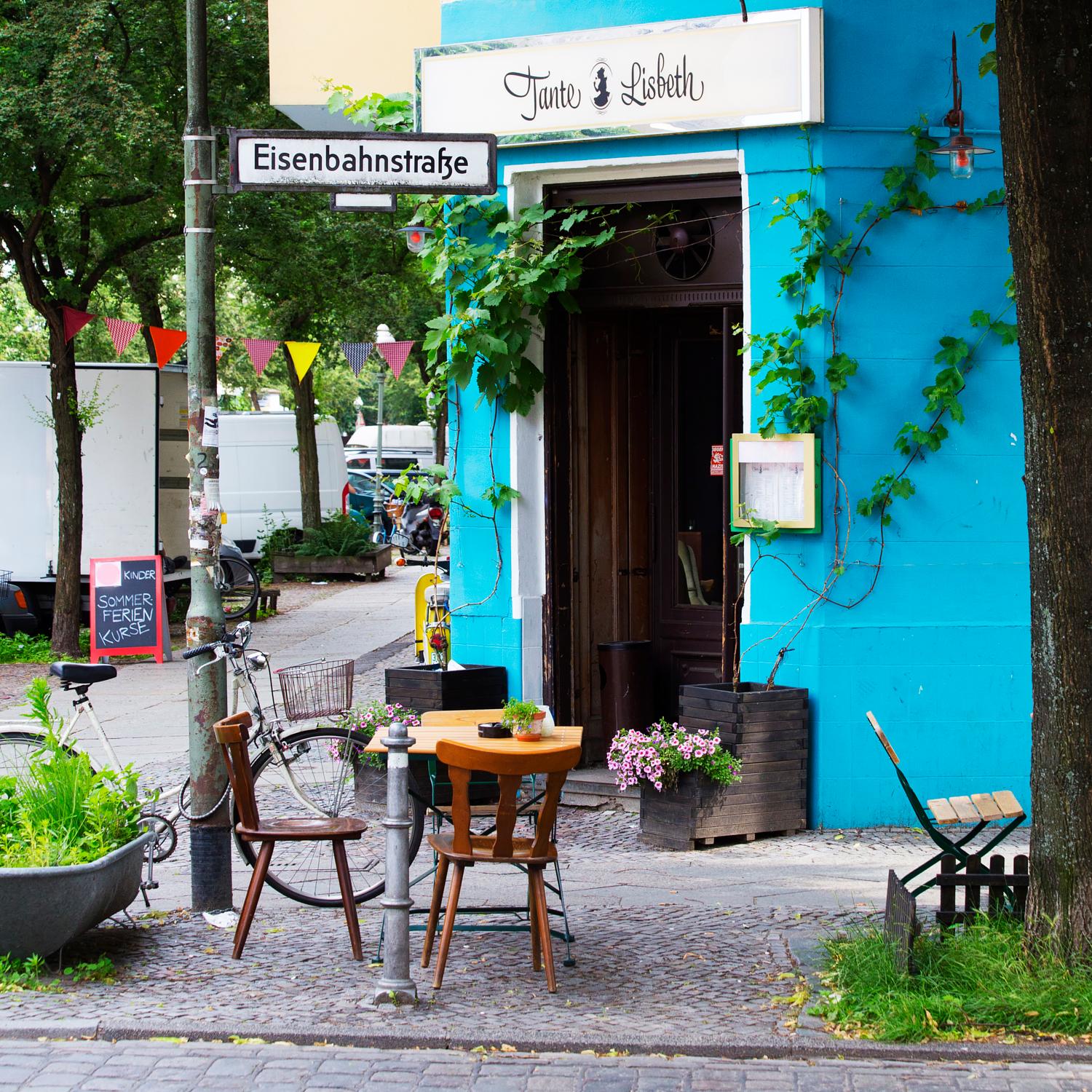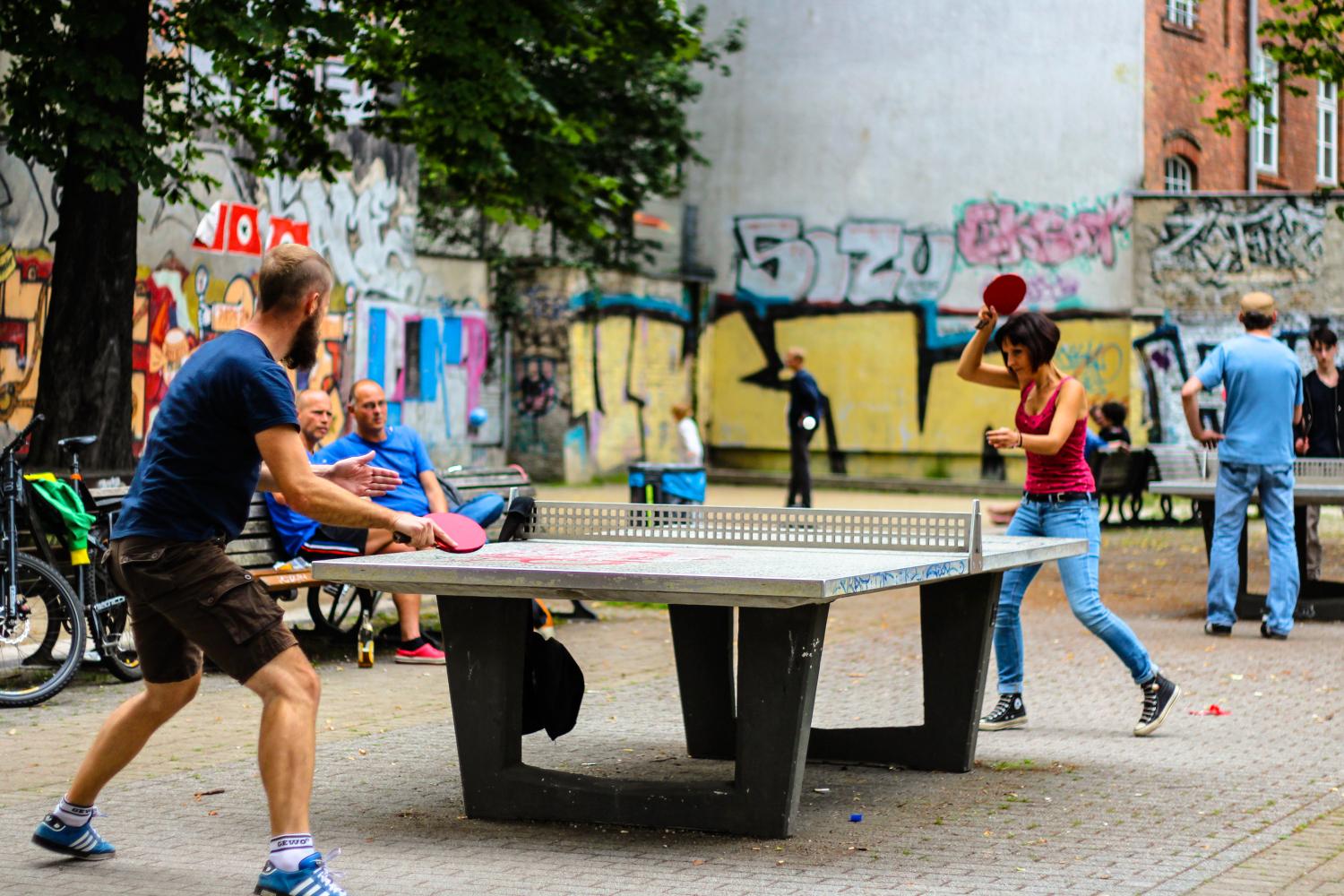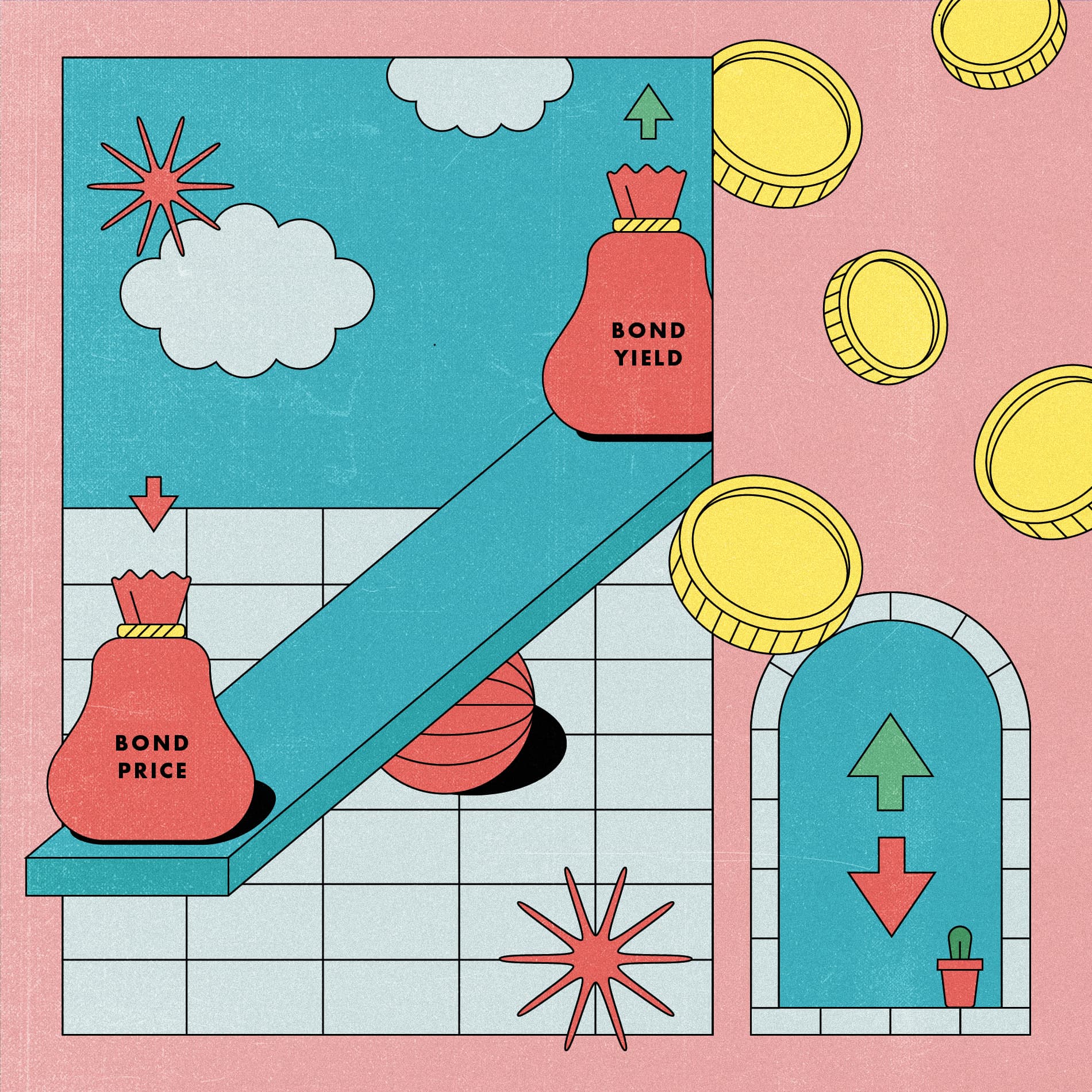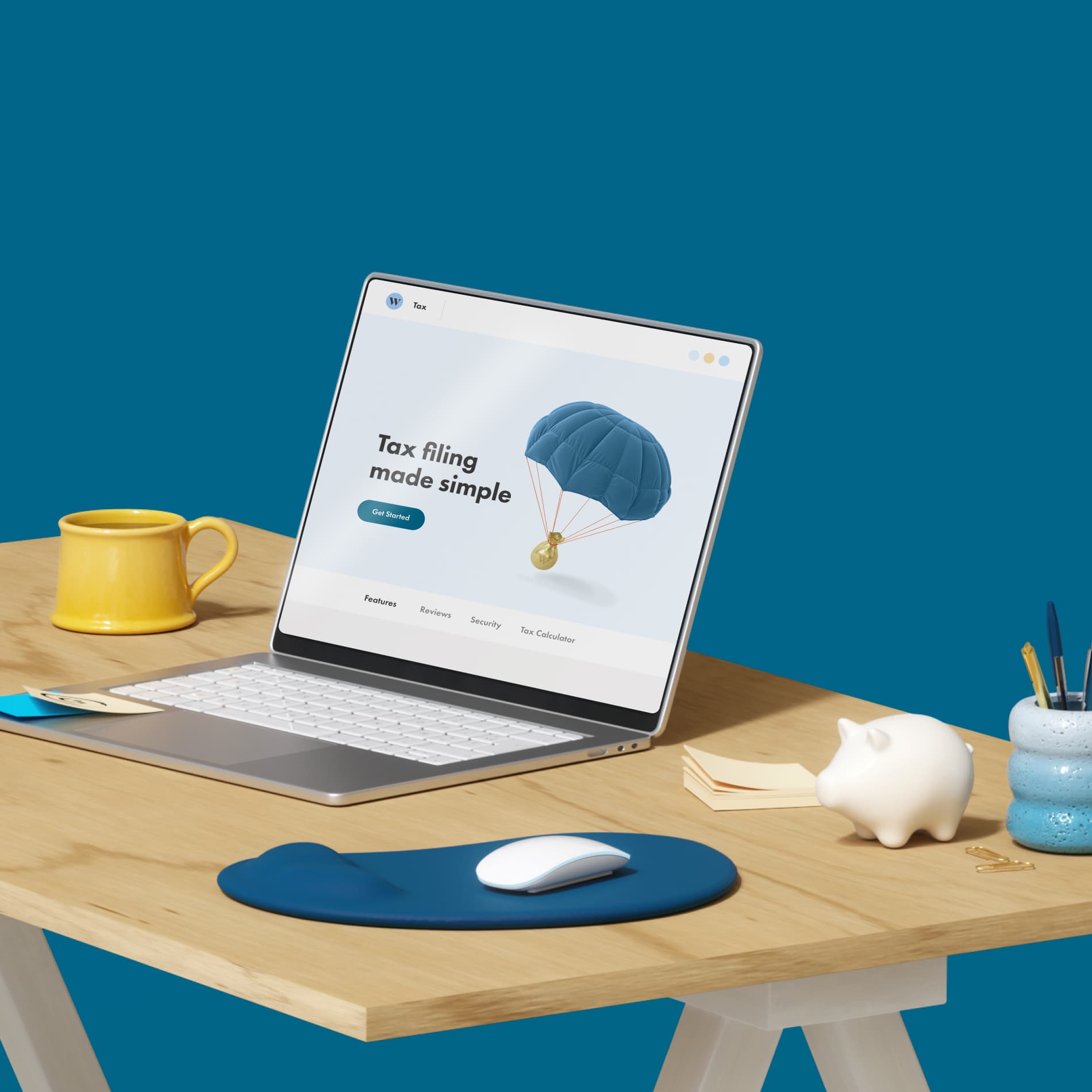
Finance for Humans
How to Take a Year off in Berlin for a Grand Total of $17,000
Don’t wait until you’ve figured out your life before you take a year off. Because no one ever totally figures out their life.
Wealthsimple makes powerful financial tools to help you grow and manage your money. Learn more
Wealthsimple is a whole new kind of investing service. This is the latest installment of our "How To" series, where we lay out smart and easy-to-understand advice on navigating the financial world.
Everyone wants to be one of those people. Oh, we just took a year and lived in Amsterdam! Or: I knew if I didn’t do it now, I never would, so I told my boss that I was moving to San Miguel to surf. Shouldn’t everyone get a sabbatical? Doesn’t all the data say it’s good for you and will increase your productivity? Don’t all the really munificent organizations—the Swedish, Google—provide a fallow period so that you might come back refreshed?
Here in North America, you can’t wait for the government to help you out. You have to be your own Google. You have to sell the idea to your boss; you have to decide how long to go for, how much it’ll cost, and, most important, where you really want to go.

Sign up for our weekly non-boring newsletter about money, markets, and more.
By providing your email, you are consenting to receive communications from Wealthsimple Media Inc. Visit our Privacy Policy for more info, or contact us at privacy@wealthsimple.com or 80 Spadina Ave., Toronto, ON.
Well, we’re making it easier to answer those last two questions. You’re going to Berlin. Why Berlin? Because it’s pretty cheap. Because it’s young and vibrant and has the craziest nightclub in the history of nightclubs. Because of the Old World charm, the art, the vibrant economy, and the state-funded fun, like the Berliner Künstlerprogramm. Because of the “This Is Us” portrait-photography exhibit at the Museum of Modern Art. Because of Ernst, the sequel to chef Dylan Watson's spectacular Jung, Grün & Blau. Because why not?
(If you don’t want to go to Berlin, that’s OK. Just take the information—and inspiration—you discover here and apply it to the destination of your dreams.)

Tante Lisbeth, a vintage bowling alley, in the stupendously cool Kreuzberg neighbourhood.
Here’s exactly how to do it:
Step One: Find Someone Who’s Already Done It and Ask Them Everything.
A friend is the best for this. But if that’s not in the cards, try everyone’s friend: the Internet. If you want to spend 12 months in Southeast Asia or Australia or remodeling your house? There are blogs for that. If you're looking for a little inspiration from someone who turned a sabbatical into a lifestyle, check out Paula Pant’s inspiring AffordAnything. For Berlin, the best ones are Collidoscope Berlin and uberlin. (Slow Travel Berlin has an excellent list of 38 more.)
Step Two: Figure Out How Much Money You’ll Need.
Get Financially Fit founder Jason Reiman normally recommends his clients keep three to six months’ worth of expenses in a savings account for emergencies, but "in a situation where your income may stop for a year, we'd want to at least double that," he says. How much you need depends on what you do. Traveling in Southeast Asia might cost as little as $25 per day. This 151-day trip around the world cost just under $12,000. You can find dozens more budgets for trips here.

Some of the biggest names in modern architecture have left their mark on the city.
In Berlin, for real estate, you should expect to pay 400 to 500 euros if you're getting a room in a shared flat (what Germans call a "WG" or "Wohngemeinschaft") and up to 1,000 for a two-room apartment in a desirable area. That lesser sum fits in nicely with a budget of $17,000 for a year. Giulia Pines, the author of Finding Your Feet in Berlin (about living in Berlin as an expat), and Mia Tyler, an academic who spent three years in Berlin, estimate you’ll need somewhere between 1,000 and 1,500 euros per month. Here’s a rough breakdown:
400 to 600 euros for rent
150 to 200 euros for health insurance
50 to 78 euros for transport
200 to 500 euros for food (Aldi and Lidl are the two rock-bottom-priced supermarkets)
100 euros for entertainment (museums and concerts here are mostly state-subsidized, so you can easily spend 10 euros for a museum ticket and less than that for a concert.)
TOTAL: 900 to 1,478 euros for a month
It’s certainly possible to go as low as 800 euros a month if you are very thrifty and share a flat. "Altogether, you could easily have a damn good life in Berlin on less than 17,000 euros a year," Tyler says.
Step Three: Spend Some Quality Time Fantasizing.
The best way to start doing that is to make this all concrete. Pick a neighbourhood you want to live in. The best three neighbourhoods for expats living on a budget are Kreuzberg (which is like New York City’s West Village), rapidly gentrifying Wedding, and Charlottenburg. Pines says Charlottenburg "is absolutely gorgeous." It boasts new museums (C/O Galerie at the Amerikahaus), restaurants (Glass and Les Solistes), shopping centers (Bikini Berlin), and Berlin's mini Chinatown, on Kantstrasse. It’s a little far away from the center of the city, though. So if you want Manhattan, not Brooklyn, look elsewhere.
More important than neighbourhood (when it comes to both motivating yourself to go somewhere and wasting time at work) is the apartment. These are the two most useful sites for Berlin apartment hunting: immobilienscout24.de and wggesucht.de.

The famous kiss painting by Dmitry Vrubel is one of the most popular works on the east side of the Berlin Wall.
Step Four: Get Bogged Down in the Details.
Two details to remember: Germany requires you to have a visa and health insurance. The easiest type of visa to secure is a freelancer visa, which requires health insurance, letters from potential employers in Germany detailing why they want you to work for them and what skills you have that match their requirements, and a bank statement that shows you have a significant chunk of cash, should you be unemployed for months at a time. You can also spend up to 90 days on a tourist visa in Germany. (You can come back and do it again but only after leaving for 90 days.) If you’re going the freelance (or student or full-time employee) route, remember to register as a resident and open a bank account before you go to the Ausländerbehörde (foreigners office). "Have your shit together," Tyler says. "The authorities do not suffer fools gladly and can be incredibly unhelpful if they feel like you're wasting their time."
Germany also requires residents to have health insurance. You can buy it from a company like ADAC for a week, a month, or however long you stay. It will run about 20 euros a month, plus a yearly membership to ADAC itself, which costs around 50 euros. It's also possible to get subsidized public health insurance, like the Künstlersozialkasse or Artist's Social Fund, but it can be difficult to gain access. The best way to get in on that is to seek out an adviser’s assistance.
Step Five: Start Saving.
All the experts we talked to say it’ll be easier to save once you’ve decided to go. It’s not that you’re depriving yourself by eating ramen; it’s that you’re getting $15 closer to those plane tickets! Esther Bloom, who took a year off to write and wrote about the experience, says that she and her husband started bringing their lunches to work. They decided not to get a pet. Instead of going out, they had friends over on weekends to hang out and play board games. "In lots of ways, we kept living like students, even once we had steady incomes," she says.
If you want to really make moves, do something dramatic: sell your house; move to a smaller place if you’re renting; if you're a couple and have two cars, sell one.

Outdoor ping pong tables are everywhere in Berlin.
Step Six: Don’t Wait Until You’ve Figured Everything Out. Just Go.
"I waited a long time, and I worried too much," Bloom says about taking the critical step from thinking about spending a year abroad to actually doing it. "I was afraid I'd get that kind of judgment from people who would chide me for not being serious.” Sophia Bera, the founder of Gen Y Planning,
says, “No one ever does this and says, 'I really shouldn't have done that.'"
If You Don’t Like Berlin, Try Argentina. Or 136 Other Countries.
Here are a few places to look to whet your appetite: Wanderlust, World Trip, Places to See, and The Planet D. Or simply follow Pinterest’s Travel category. Nomadic Matt is a site promising to help you "travel better cheaper longer." Inspiration is only a click away.
Wealthsimple makes smart investing simple and affordable.
Wealthsimple's education team is made up of writers and financial experts dedicated to making the world of finance easy to understand and not-at-all boring to read.









